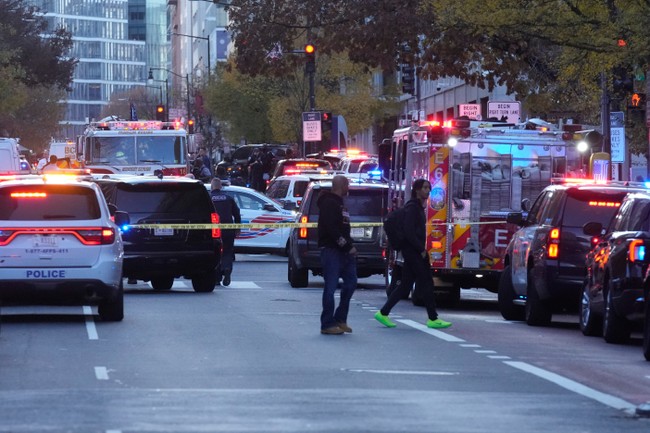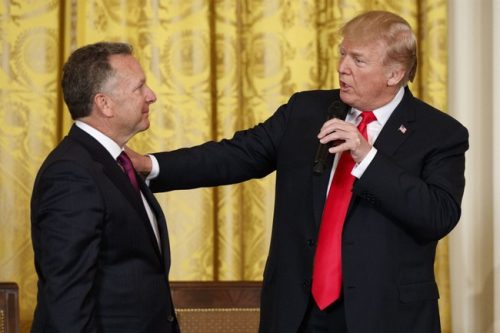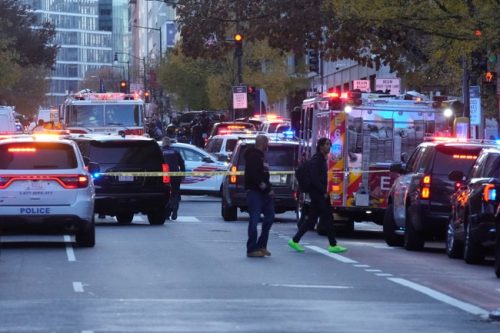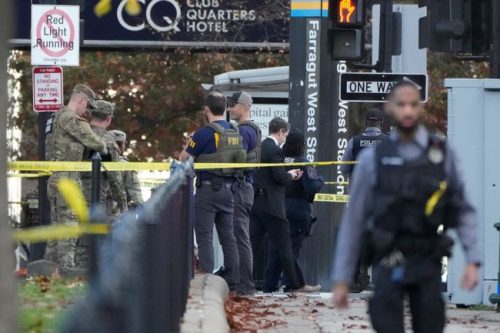President Trump ordered a re-vetting of Afghan arrivals after an Afghan national allegedly shot two National Guardsmen near the U.S. Capitol, calling the attack an act of terror and blaming lapses in post‑2021 immigration procedures.
President Donald Trump addressed the nation after a shooting in Washington, D.C., that left two National Guard members critically wounded. Officials say 29-year-old Afghan national Rahmanullah Lakanwal allegedly fired at the soldiers at point-blank range near the Capitol around 2:15 p.m.
The president described the attackers’ actions in stark terms and vowed immediate measures to prevent similar threats. His remarks framed the incident as not just a criminal act but as a failure of policy that demands a stronger national security response.
“This heinous assault was an act of evil and act of hatred and an act of terror. It was a crime against our entire nation. It was a crime against humanity. The hearts of all Americans are with the those two members of the West Virginia National Guard and their families.”
The president made clear he links the suspect’s presence in the United States to evacuation flights and the policies that followed them. He said the individual entered during the chaotic evacuations and that that process created vulnerabilities that have yet to be fully addressed.
President Trump on the terrorist attack against two National Guardsmen:
"This heinous assault was an act of evil, an act of hatred, and an act of terror. It was a crime against our entire nation. It was a crime against humanity." pic.twitter.com/R6HHIPZoxl
— Townhall.com (@townhallcom) November 27, 2025
“He was flown in by the Biden administration in 2021 on those infamous flights that everybody was talking about; nobody knew who was anything about it,” Trump said during the speech. “His status was extended under legislation signed by President Biden, a disastrous president, the worst in the history of our country. This attack underscores the single greatest national threat facing our nation.”
From a Republican perspective, this incident underscores predictable consequences of lax vetting and rushed evacuation policies. The administration called for immediate policy fixes and tighter oversight of those admitted under emergency programs to make sure security is never compromised again.
Trump announced his administration will re-vet Afghan arrivals and ordered extra forces to secure the capital while the investigation continues. He directed an additional 500 troops to Washington, D.C., to assist local authorities and protect critical sites during the heightened alert period.
Federal law enforcement and counterterrorism teams are reportedly coordinating with local agencies to piece together the suspect’s background and movements. Officials will review how his status was handled and whether any steps in current procedures allowed a dangerous individual to slip through.
The president stressed that protecting citizens and service members must be the top priority and framed his orders as a return to common-sense security. He emphasized that preventing further attacks depends on strict vetting, better intelligence sharing, and stronger border and immigration controls.
While the investigation is ongoing, the president used the moment to press for legislative and administrative changes aimed at stopping similar failures. He argued that re-vetting and a tougher posture on admitting high-risk entrants are essential to restoring public safety and trust in government.
In the wake of the shooting, officials continue to provide updates on the condition of the wounded Guardsmen and on the suspect’s status. The focus now is on securing the capital, supporting the victims and their families, and ensuring the next steps in the investigation lead to accountability and improved security procedures.






